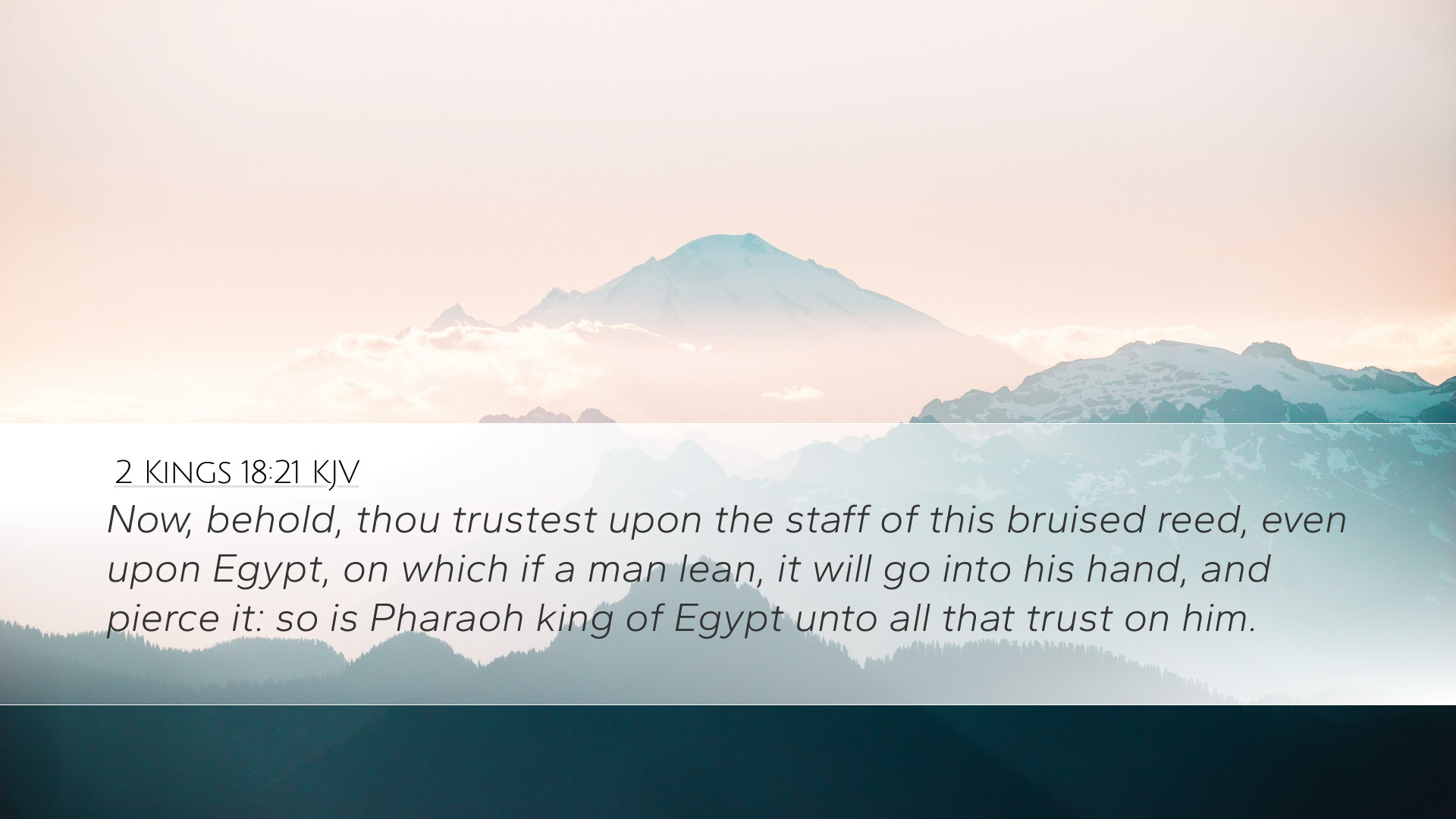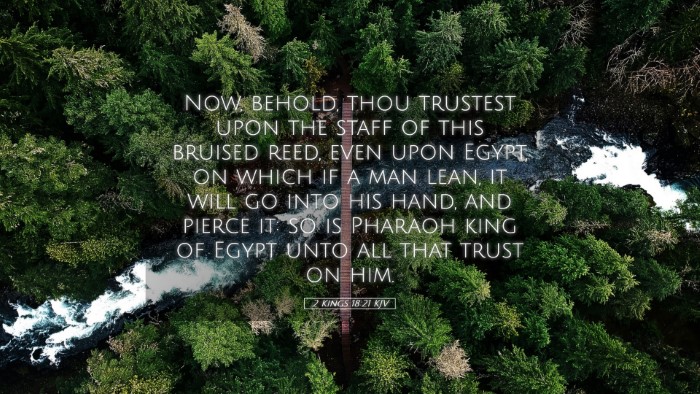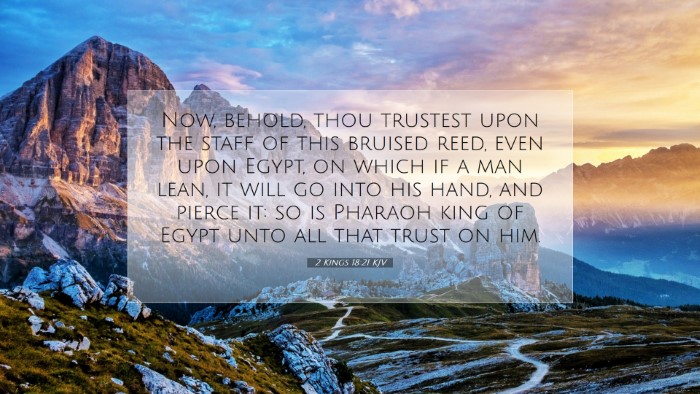Commentary on 2 Kings 18:21
Verse Reference: 2 Kings 18:21 - "Now behold, you are relying on the staff of this broken reed, even on Egypt, on which if a man leans, it will go into his hand and pierce it; so is Pharaoh king of Egypt to all who rely on him."
Introduction
This verse addresses a significant moment in the history of Judah during the reign of King Hezekiah. It reveals the futility of trusting in human alliances, particularly the alliance with Egypt, which was perceived as a source of strength. This commentary draws upon insights from the writings of Matthew Henry, Albert Barnes, and Adam Clarke to explore the theological and practical implications of this verse.
Contextual Analysis
The historical backdrop of 2 Kings 18:21 involves the Assyrian threat to Judah. Hezekiah is faced with external pressure and is tempted to forge an alliance with Egypt, which was a common practice among the nations at that time. This reliance on Egypt symbolized a lack of trust in God. The phrase "broken reed" metaphorically depicts Egypt as an unreliable support rather than a source of strength.
Matthew Henry's Insight
Matthew Henry emphasizes the metaphorical nature of the "broken reed." He describes how poor choices lead nations to rely on fleeting powers instead of divine providence. Henry cautions believers against placing their trust in anything that is not God, pointing out that external dependencies often lead to internal vulnerabilities. He writes, "Those who lean on Egypt shall find themselves wounded by it." This serves as a warning against misplaced reliance.
Albert Barnes' Perspective
Albert Barnes offers a rich commentary on the implications of relying on Egypt. He notes that the metaphor of the reed highlights both fragility and danger; leaning on an unstable support brings eventual harm. Barnes states, "The dependence on Egypt was both a dishonor to God and a perilous endeavor." This reflects a broader theme in scripture advocating for faithfulness to God over human alliances. Barnes encourages scholars and leaders to recognize the intrinsic risks involved when one depends solely on human wisdom rather than divine guidance.
Adam Clarke's Commentary
Adam Clarke delves into the nature of the relationship between Judah and Egypt, interpreting it as a failure rooted in a lack of faith. Clarke notes the historical context of this alliance and its implications: "As long as the people of God rely on the might of men, they will find themselves disappointed." His emphasis is on the spiritual consequences of seeking security in earthly powers instead of the divine promises of God. Clarke’s analysis encourages pastors and scholars to reflect on the modern-day equivalents of such alliances and the spiritual ramifications that follow.
Theological Themes
- Dependence on God: Central to this verse is the theme of reliance on God versus human powers. The Israelites' attraction to Egypt mirrors a common human tendency to seek security in what is visible and tangible rather than trust in God’s promises.
- The Danger of Misplaced Trust: The imagery of the "broken reed" serves as a stark warning that temporary alliances may lead to long-term consequences. This theme resonates deeply throughout the scriptures, illustrating the importance of placing faith in God's unfailing strength.
- Human vs. Divine Wisdom: This verse invites theological reflection on the wisdom of the world versus divine wisdom. Modern applications of this theme can be found when considering the ethical dilemmas faced by believers today as they navigate political and social pressures.
Practical Applications
For pastors, students, and theologians, 2 Kings 18:21 serves as a profound reminder of the necessity of placing complete trust in God. In an age where external pressures abound and reliance on human systems can be tempting, this passage calls for a robust faith that prioritizes spiritual convictions over earthly alliances.
Furthermore, the context of international relations and personal crises can parallel the historical circumstances of Israel and Judah. Believers are encouraged to critically evaluate where they place their trust and to seek divine wisdom in all aspects of life.
Conclusion
In summary, 2 Kings 18:21 delivers a powerful message about the risks of compromising faith through reliance on worldly powers. As reflected in the commentaries of Henry, Barnes, and Clarke, the exhortation is clear: true security comes from God alone. Engaging with this text encourages spiritual growth and the cultivation of a faithful reliance on God’s providence amidst life’s uncertainties.


